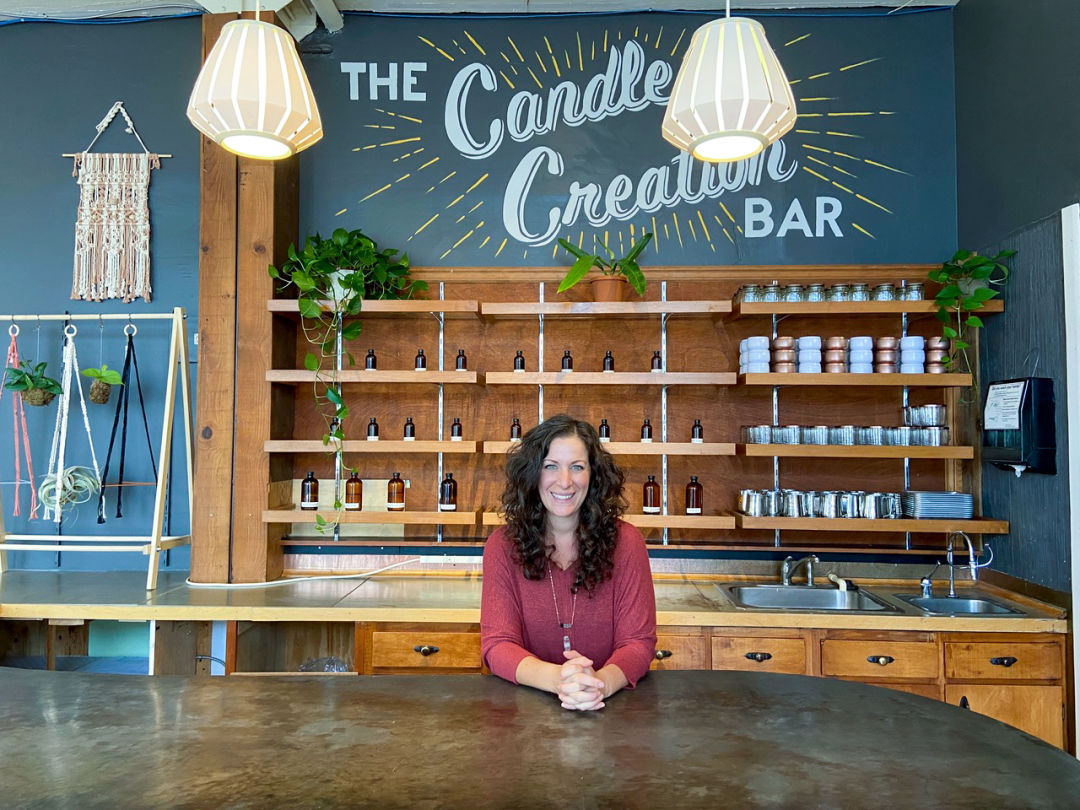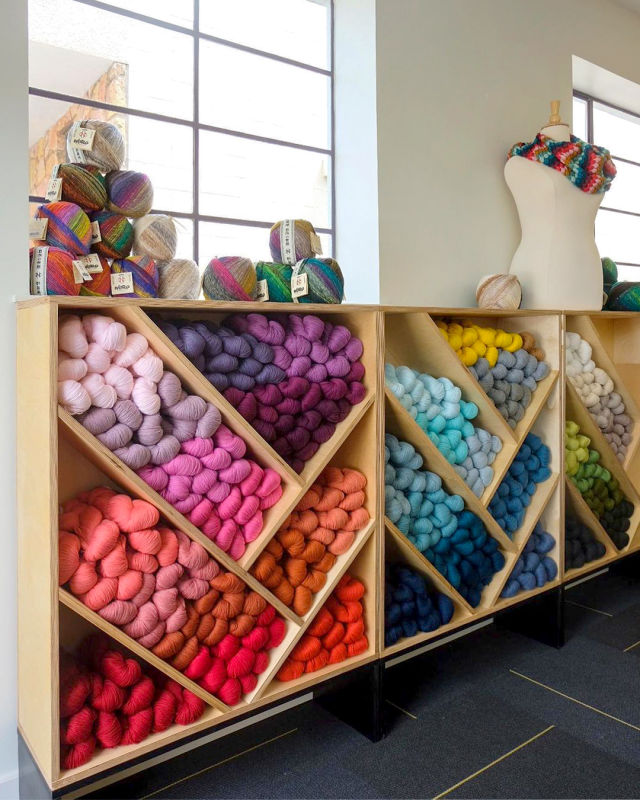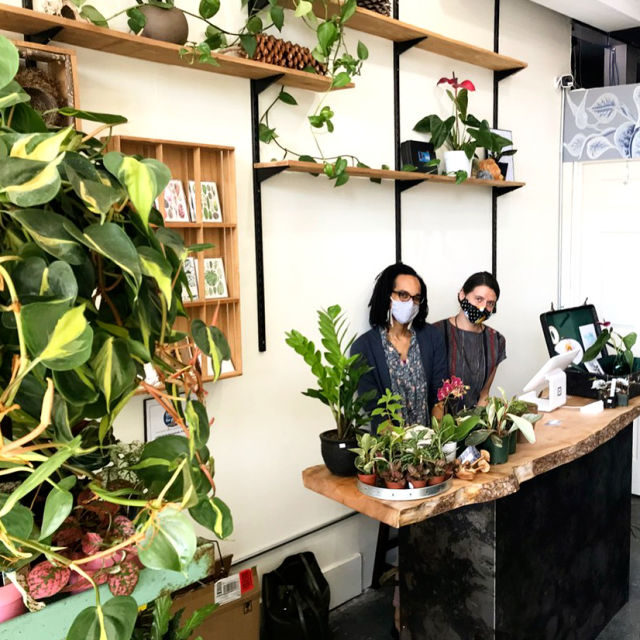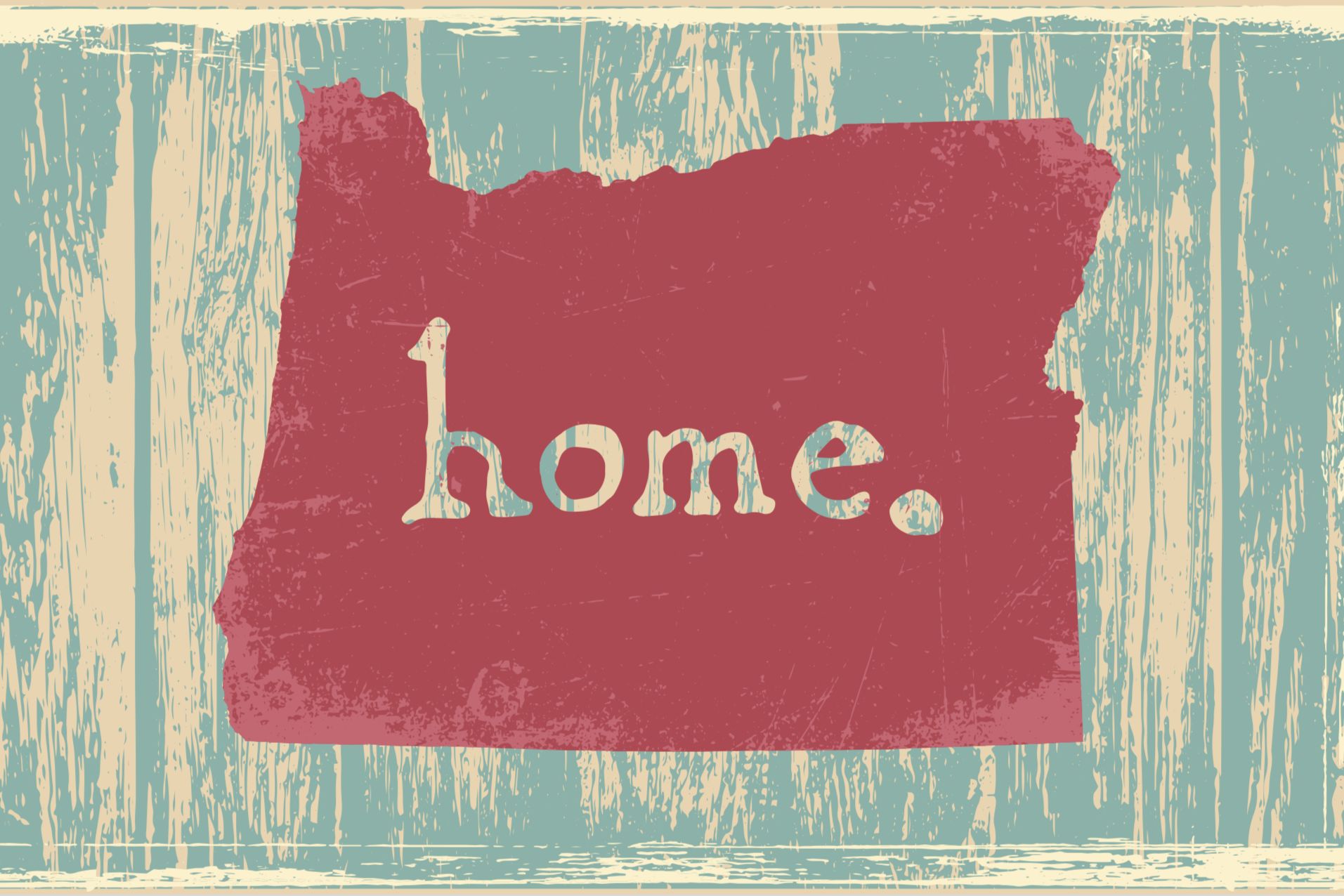For Some Portland Businesses, the Pandemic Was the Chance They Needed to Get in the Game

For Leslie Abrams, the pandemic’s toll on commercial real estate meant a chance to move Yo Soy Candle out of her basement.
Image: Courtesy Yo Soy Candle
By the time Oregon went into lockdown last spring, Leslie Abrams had made peace with it: the perfect commercial studio space she’d been seeking for her fledgling candle business wasn’t out there. Disappointing, but she’d perfected the work-from-home routine over the past eight years, in what started as a side hustle and turned into a full-time gig—alone, in her basement, covered in candlewax.
“Every place we saw wanted a five-year lease, a business plan, and for us to throw down $10,000 a year to start,” Abrams remembers. “We thought, this feels too scary, too hard, too arduous.”
Then, a few months later, she had a chance encounter with a friend who works at the Jasmine Pearl Tea Company in Northeast Portland. The friend told her the loose-leaf tea business’s tasting room was empty now. After a hard year that included losing her own father to COVID-19, Abrams couldn’t contain her excitement: within 24 hours, she’d signed a lease for the space, for month-to-month rent, at a price that felt right. In September, amid wildfires that blocked out the sun for more than a week, she opened the doors to Yo Soy Candle, sharing (distanced and masked up) space with two other female-run start-ups—Maelu, which specializes in globally inspired textiles, and Wildehaus, which specializes in plants and interior design—in their first brick-and-mortar space.
“This shop would not have happened if it weren’t for the pandemic,” Abrams says now.
Big picture, it’s been a tough 12 months for small businesses in Portland, no question. Old favorites have closed up shop, battered by the pandemic and an uncertain future in the city; other businesses have cut to the bone to hold onto customers who’ve gotten more used to the ease of online shopping from Amazon and other giants.
But for some, like Abrams, a silver lining: entrepreneurs who’ve found landlords more sympathetic and rents lower than in the precoronavirus era, and decided the time was right to set up shop.

House of A La Mode
Image: Courtesy House of A La Mode
Perhaps not coincidentally, many specialize in niche goods, the kinds of small, accessible luxuries bringing people tiny bursts of cheer in dark times. Take Heather Bostic, whose House of A La Mode fiber goods store in Gresham opened in August 2020. Bostic knew it was a risk—a handful of other local yarn stores had closed in the months prior—but she was ready to try, after having sold her own hand-dyed line of wool online for years. A vacant storefront in Gresham caught her eye and sent her scrambling to find the landlord (whom she describes as a “dreamboat”), an architect and east-county booster who was willing to make a deal. She hired a local woodworker to custom-make shelving, scoured local markets to find other local yarn-dyers to sell, and made sure her on-the-floor samples were size-inclusive and from a diversity of makers.
“The world seems heavy right now. Portland seems heavy right now,” Bostic says. “We are looking to brighten up life. People need to see that even in dark times, we can prevail and have moments of brightness.”

Kailia Wray (left) and Kasia Terra at Larkspur Portland
Image: Courtesy Larkspur Portland
Kasia Terra and Kailia Wray felt the same way about Larkspur Portland, their snug, sunny “plant gallery” that also opened in September, in Southeast’s Foster-Powell neighborhood. They’d been selling at local farmers markets over the summer, after they couldn’t quite find a permanent space.
Their new store—which they say has been such a hit with the neighborhood that they are already planning for expansion—used to be a shared artists’ workspace, which emptied out in March. The landlord liked their vision and “gave us a deal we couldn’t turn down,” Terra says. They did the math, and figured they had at least three months of runway. Since opening, their bottom line has been helped, Wray notes, by the surprisingly hot market for rare collector plants.
“We can’t keep them in the shop,” Wray says. “It’s so much easier to sell a $200 plant [right now] than a $20 plant! People throw down.”
All three businesses have coped with the shifting guidance for in-person shopping, limiting the number of customers who can be inside their stores, requiring masks, and installing air filters and purifiers.
And the owners of all three have dreams for a postpandemic future. Terra specializes in horticultural therapy—feeling better and more grounded by way of plants, for the uninitiated—and imagines in-house workshops, like how-to classes in kokedama (Japanese moss balls), and build-your-own bulk soil stations. Abrams already hosts a “candle creation bar,” which can be booked for small, private sessions. In the future, she’d love to hold book clubs and small business events, while Bostic imagines hosting classes for knitters with disabilities, such as her own child.
Most important, they all expect to be around for a while. The pandemic will subside, but they are banking that our collective once-and-future love of cozy domesticities—plants, knitting, candles—will stick around.
“When we are in COVID, and our survival and safety is in question, we can make our homes more beautiful,” says Terra. “It’s a deeper thing that is happening, where we are tapping into more primitive aspects of ourselves.”




